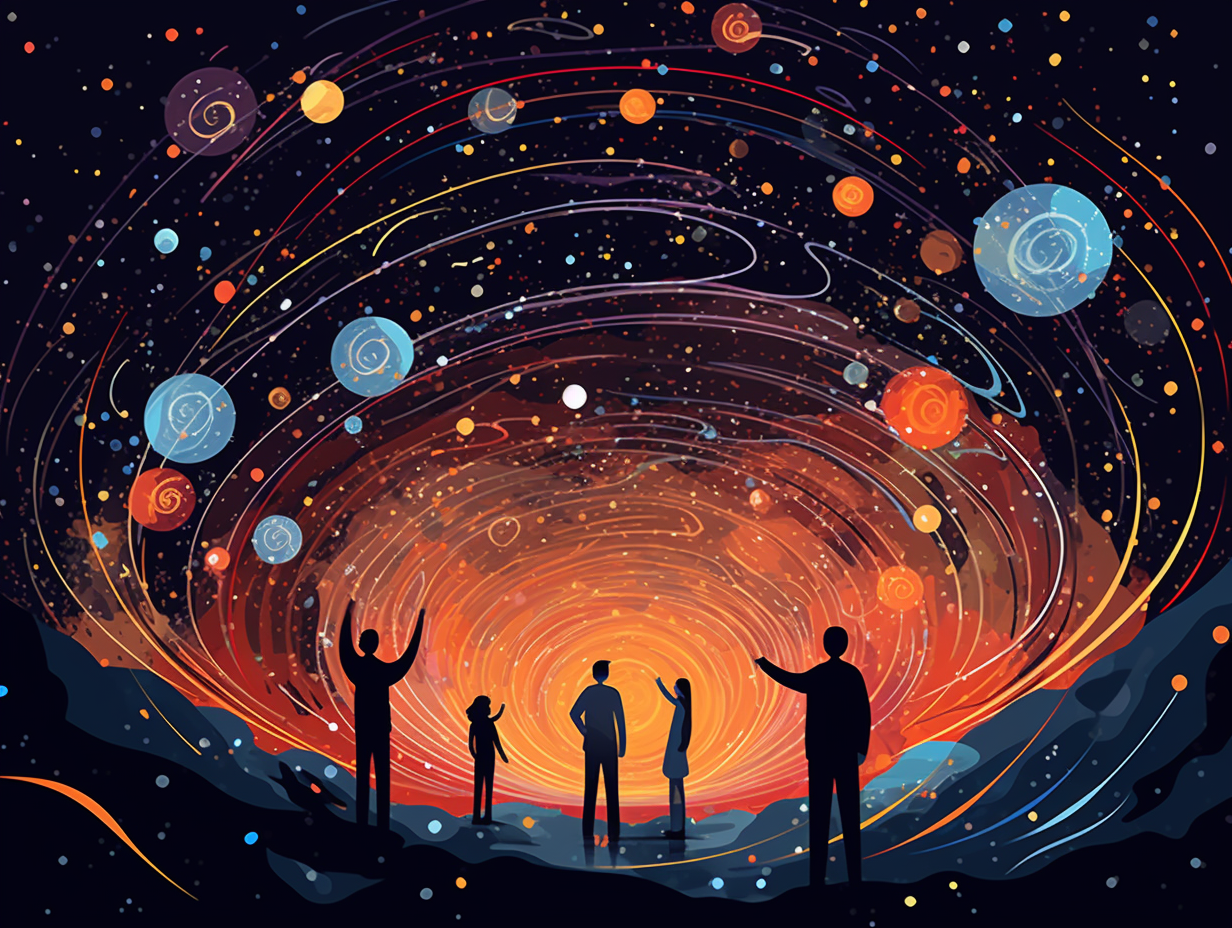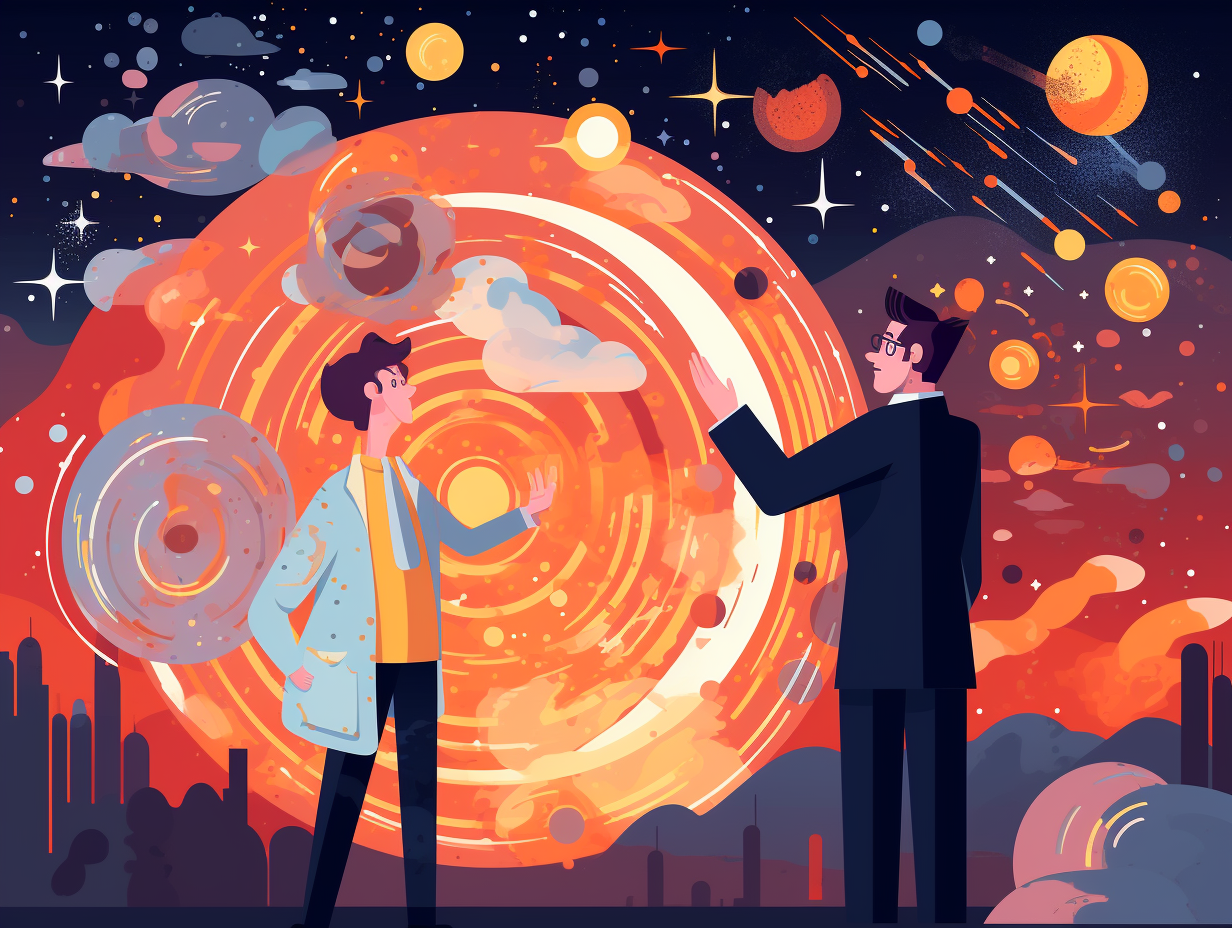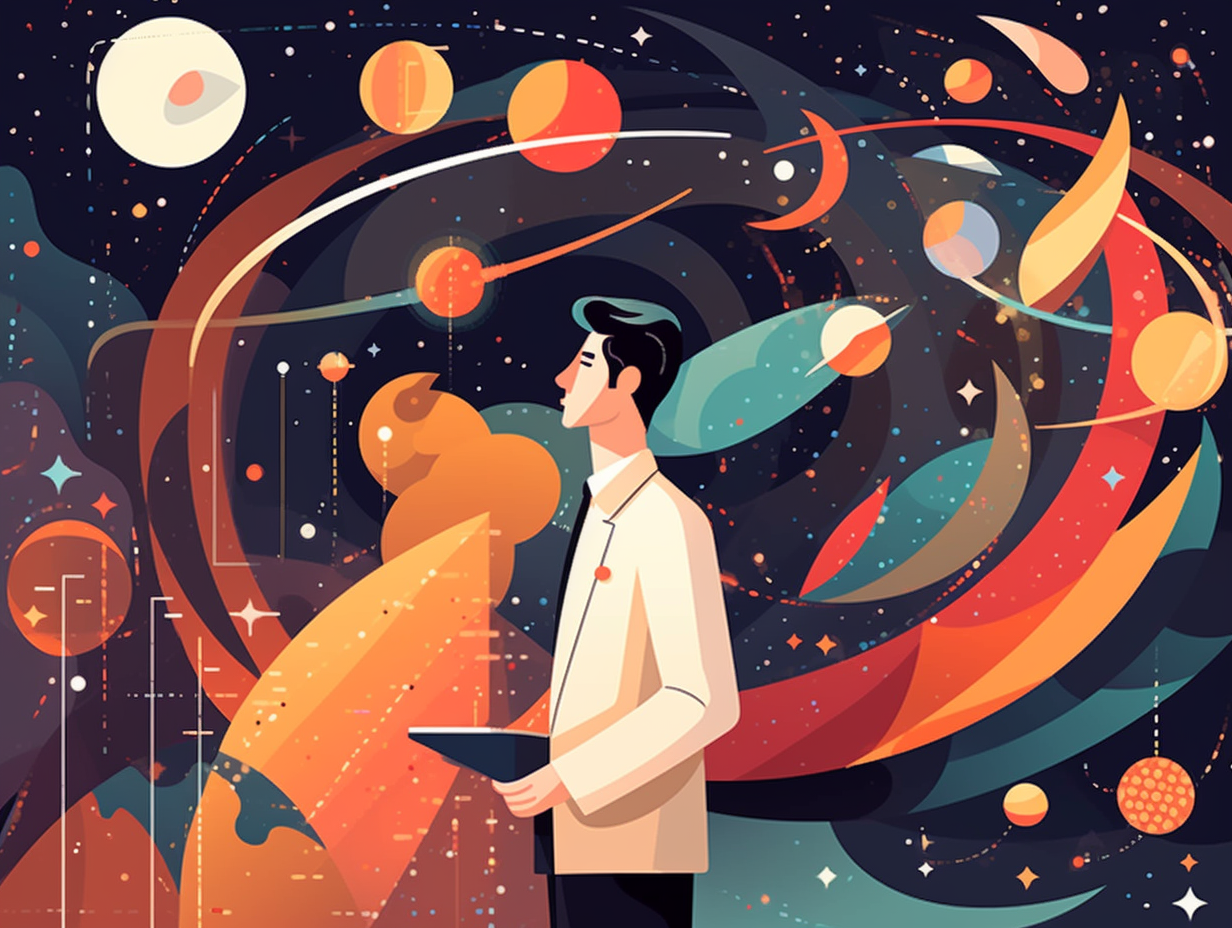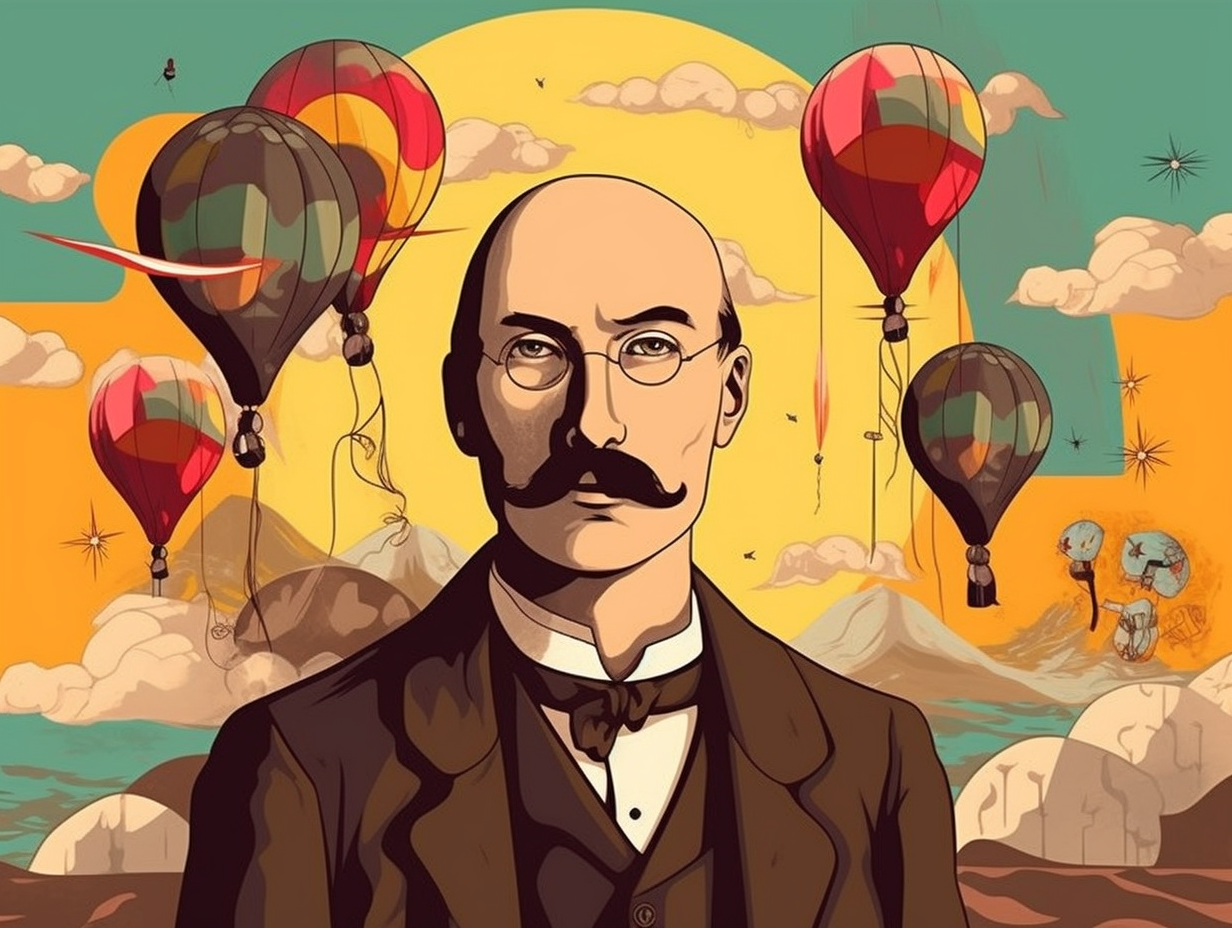Explosive Discoveries: Top 14 Fun Facts About the Big Bang That'll Blow Your Mind!

1. Silent but Universal Magic Trick
Bombs away? More like Cosmos on display! In a burst of cosmic irony, the Big Bang wasn't a deafening kaboom as one might expect, but a mind-boggling universal magic trick: 13.8 billion years ago, the universe expanded from a superdense, itsy-bitsy point into the infinite cosmic expanse we know today.
Source => amnh.org
2. Star-Crafted Body Elements
If you've ever felt like a star, here's your chance to gleefully exclaim, "I told you so!": All the elements in our bodies were crafted inside twinkling stars, with hydrogen and helium from the Big Bang, and heavier elements like oxygen, carbon, calcium, and iron through secret recipes of fusion in their celestial kitchens, eventually reaching Earth through a delightful concoction of stellar winds and supernova explosions.
Source => amnh.org

Did you know that Carl Friedrich Gauss could predict the day of the week for any given date, even in the year 2000? Dive into the incredible mind of this mathematical genius and discover more fascinating facts!
=> Fun Facts about Carl-Friedrich-Gauss
3. Ultimate Cosmic Cookout
Forget your freezer burn, the big bang was the ultimate cosmic cookout: in the first few minutes following the explosive event, temperatures sizzled at around 100 nonillion Kelvin, which, while exceptionally scorching, still falls short of a billion degrees Celsius.
Source => space.com
4. Flashiest Cosmic Flash Mob
Hold onto your spacesuits, folks; we're about to dive into the flashiest cosmic flash mob in history: During the epoch of inflation, a fraction of a second after the Big Bang, the Universe expanded exponentially, growing rapidly in size but without breaking any laws of physics or outpacing the speed of light.
Source => skyatnightmagazine.com

5. Microwaving Origins of the Universe
Ever wish your microwave could cook up something even more mind-blowing than those leftover burritos? How about the origins of the universe: Cosmic microwave background radiation (CMBR), discovered by Arno Allan Penzias and Robert Woodrow Wilson, supports the Big Bang theory, as it's a relic from that very event, permeating space homogeneously in the microwave range, and providing researchers with tantalizing tidbits about our cosmic beginnings.
Source => en.wikipedia.org
6. Universal TV Signal Sabotage
Ever had that gnawing suspicion that the universe is messing with your TV signal, in cahoots with your favorite sitcom reruns? Guess what, it's actually a thing: The cosmic microwave background, believed to be leftover radiation from the Big Bang, partially causes the static on analog televisions. While the exact percentage depends on the location and quality of the TV set, it's scientifically proven that this cosmic prankster is tickling our antennas, confirmed by instruments like the Planck satellite.
Source => ripleys.com
7. Cosmic Toast Party
Did you hear about the party at the edge of the universe? It started with a Big Bang and they even made cosmic toast with hot microwave background radiation! The hilarious reveal: The discovery of the cosmic microwave background radiation bolstered the Big Bang theory to widespread acceptance among astronomers, although some still propose alternative explanations for the observed radiation.
Source => amnh.org
8. Primordial Chicken & Elemental Eggs
In a cosmic game of "What came first, the chicken or the egg?", the primordial chicken laid some helium and hydrogen "eggs" after the Big Bang—and they've been multiplying ever since: The first atoms to form were primarily helium and hydrogen, which remain the most abundant elements today, with heavier atoms like carbon, oxygen, and iron being produced continuously in stars and through supernovae explosions.
Source => home.cern
9. Early Universe's Stellar Divas
In the cosmic talent show that was the early universe, the first stars were nothing less than stellar divas, outshining everyone and stealing the limelight: These massive celestial performers, with masses 100 to 1,000 times that of our sun, debuted within the first 100 to 250 million years after the Big Bang, belting out ultraviolet tunes that sparked a cosmic renaissance and eventually gave rise to the supermassive black hole-powered quasars.
Source => scientificamerican.com

10. Cosmic Secret of Dark Energy
In a plot twist that would make M. Night Shyamalan jealous, it turns out that the Universe has been keeping a cosmic secret from us all along: dark energy, a mysterious form of energy, comprises a whopping 70% of the total energy density in the Universe, fueling its accelerated expansion and determining its ultimate fate.
Source => bigthink.com
11. Redshift Raceway
If space had a Mario Kart track, it would be called "Redshift Raceway": Distant galaxies display a redshift in their spectrum of light, proving the universe is expanding and giving credibility to the Big Bang Theory. This redshift is actually caused by the stretching of space itself, increasing the wavelength of light emitted - now that's some cosmic teamwork!
Source => en.wikipedia.org
12. Dark Energy: Imaginary Cosmic Friend?
Remember when you were a kid and that one friend claimed to have an "imaginary friend" who was totally the reason for every mess or disaster? Well, scientists might have just found their cosmic imaginary friend: dark energy! In a shocking turn of events: a Hungarian-American team conducted computer simulations which challenge the notion of dark energy making up 68% of our universe. Turns out, conventional models in cosmology might just need a little unclumping, and no blame needs to be placed on the ever-elusive dark energy for the accelerated expansion of our universe. Whoopsie daisy!
Source => sciencedaily.com
13. Quirky Quarks' Formation Struggle
It's not easy being quarky: In the universe's wild teenage years, around 10-12 seconds after the Big Bang, poor quarks just couldn't stick together to form hadrons due to the fiery high temperatures. Finally, when the universe hit 10-6 seconds old and chilled out a bit, those energetic particle interactions dropped, and quarks got their act together to settle into hadrons during the hadron epoch.
Source => en.wikipedia.org
14. Personal Space Invaders: Universal Edition
It turns out the universe might just be the ultimate game of "personal space invaders," constantly trying to create more distance between celestial objects: In actuality, the expansion of the universe doesn't make it bigger, but increases the average distance between objects, making the observable universe subjective and different for each observer based on their location in the grand cosmic dance.
Source => forbes.com
Related Fun Facts
















